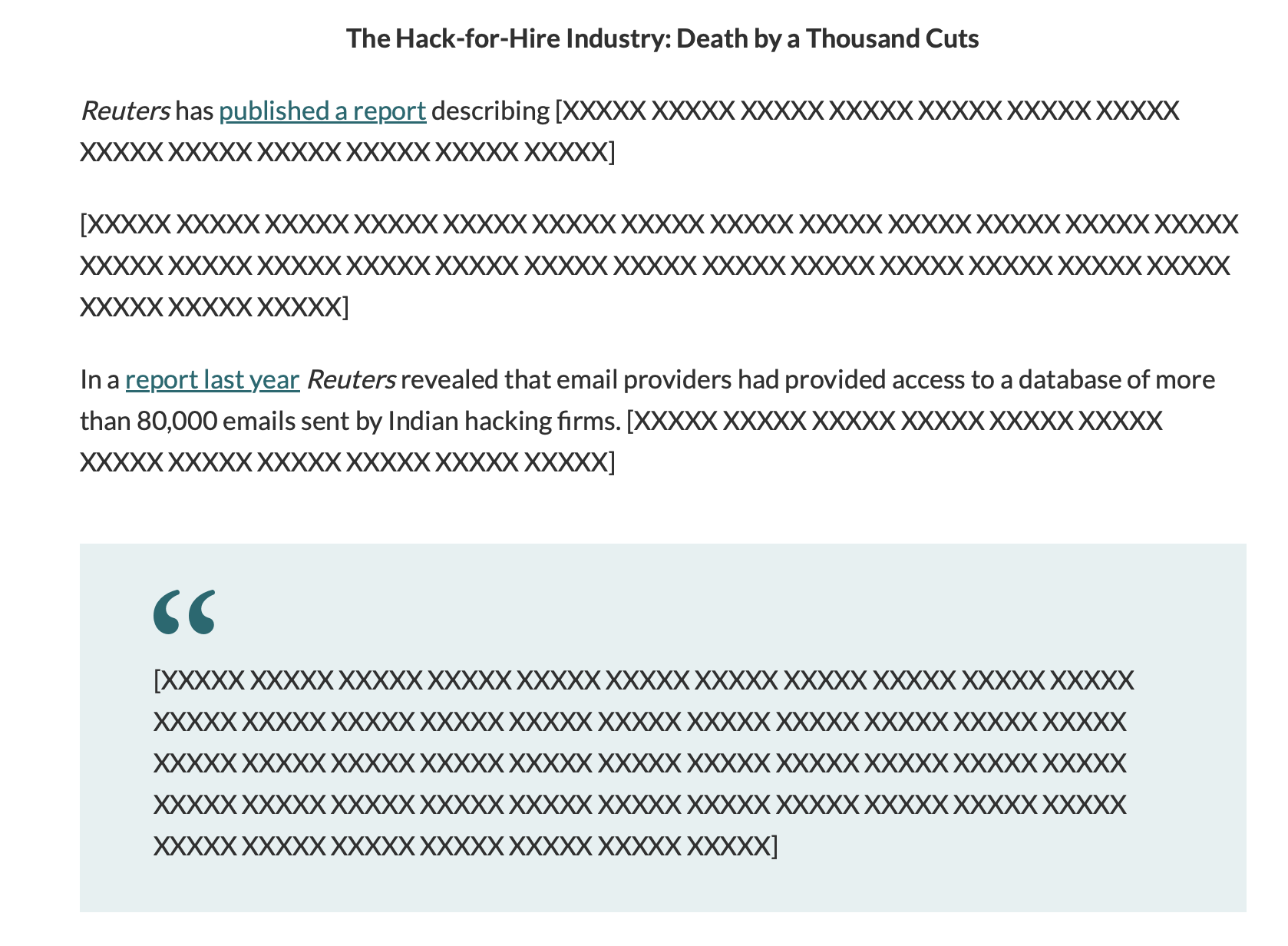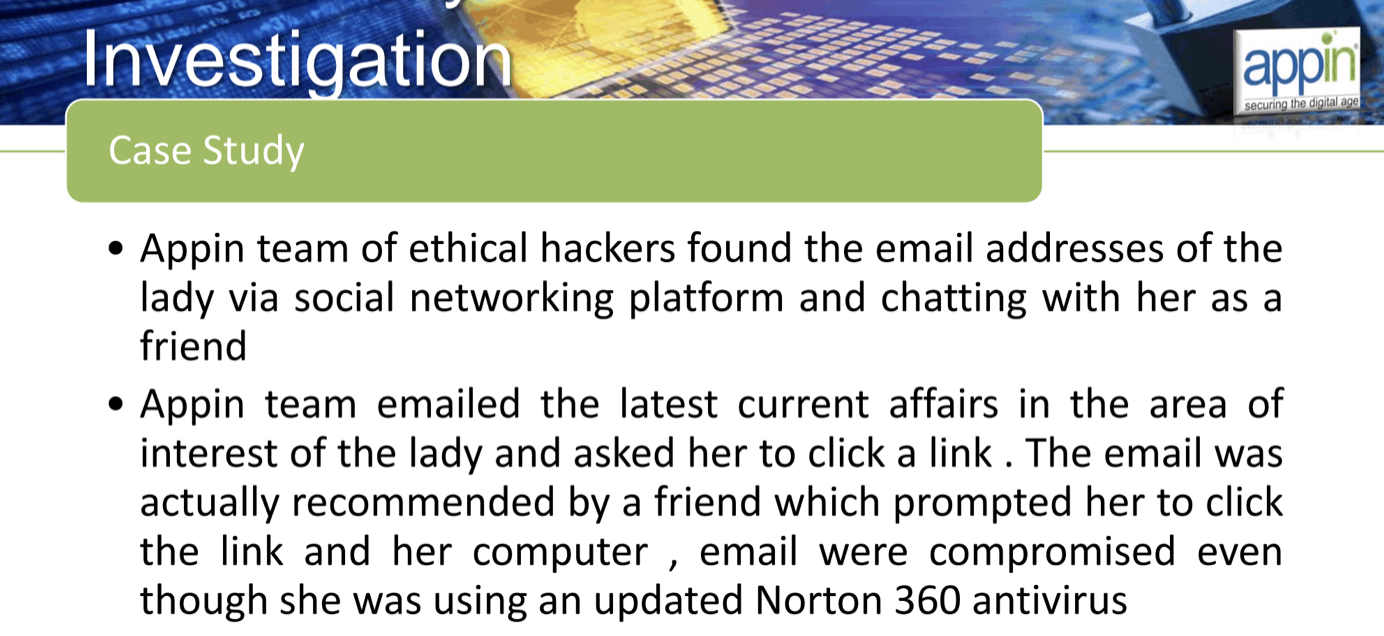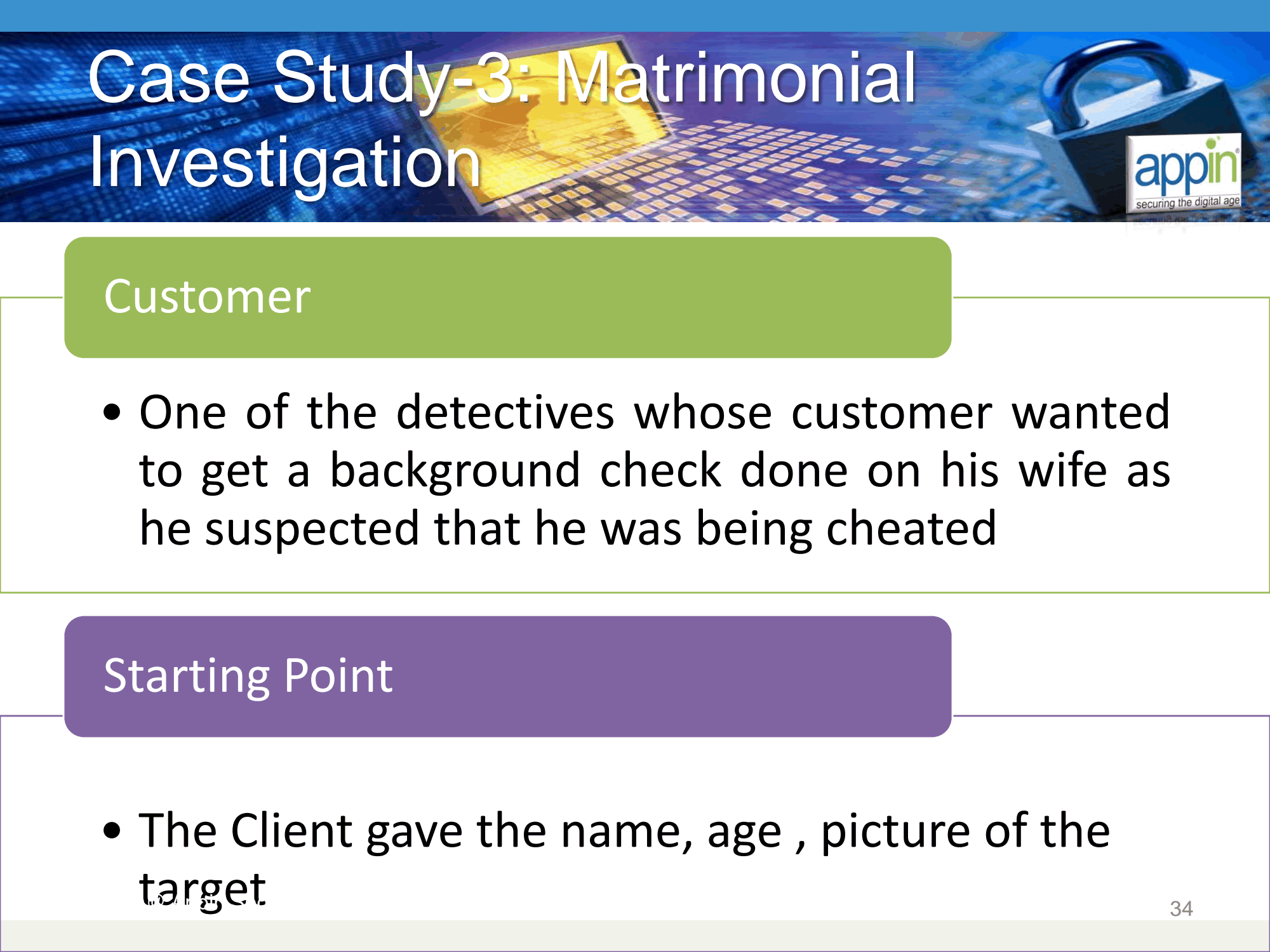Founded in 2003, Appin has been described as a cybersecurity company and an educational consulting firm. Appin was also, according to Reuters reporting and extensive marketing materials, a prolific “hacking for hire” service, stealing information from politicians and militaries as well as businesses and even unfaithful spouses.
Legal letters, being sent to newsrooms and organizations around the world, are trying to remove that story from the internet — and are often succeeding.
Reuters investigation, published in November, was based in part on corroborated marketing materials, detailing a range of “hacking for hire” services Appin provided. After publication, Reuters was targeted by a legal campaign to shut down critical reporting, an effort which expanded to target news organizations around the world, including MuckRock.
With the help of the Electronic Frontier Foundation, MuckRock is now sharing more details on this effort while continuing to host materials the Association of Appin Training Centers has gone to great lengths to remove from the web.
The original story, by Reuters’ staff writers Raphael Satter, Zeba Siddiqui and Chris Bing, is no longer available on the Reuters website. Following a preliminary court ruling issued in New Delhi, the story has been replaced with an editor’s note, stating that Reuters “stands by its reporting and plans to appeal the decision.” The story has since been reposted on Distributed Denial of Secrets, while the primary source materials that Reuters reporters and editors used in their reporting are available on MuckRock’s DocumentCloud service.
Representatives of the company’s founders denied the assertions in the Reuters story, insisting instead that rogue actors “were misusing the Appin name.”
Reuters’ article noted that several entities that also share the Appin name, part of a franchise model for educational efforts, were not involved in the hacking-for-hire work featured in their reporting.
The Association of Appin Training Centers has done more than just denounce the story, however: they have been working hard to keep this and other related reporting off of the internet. They received a court order forcing Reuters to remove the reporting as the merits of the litigation work through the courts:
While the court order shared with us applies to Reuters, the Association of Appin Training Centers has also sent a removal request to MuckRock and other news organizations, citing the preliminary court order against Reuters. An article on Lawfare that referenced the Reuters reporting has been replaced with heavy redactions.

At Techdirt, Mike Masnick also wrote about the issue and the troubling implications of this effort, only to receive correspondence from the Association of Appin Training Centers legal department as well.
Despite the Association of Appin Training Centers’ requests for MuckRock and DocumentCloud to comply with a legal order that does not address our organization, we have and plan to continue hosting these materials for public access — you can read through the documents below.
We also think it’s important that vague, intimidating legal demands be brought out more clearly into the light, and we’re grateful that the Electronic Frontier Foundation has agreed to help MuckRock and Techdirt respond. On Monday morning, India Standard Time, the Electronic Frontier Foundation sent the following message on our behalf:
To the Association of Appin Training Centers:
We represent and write on behalf of Techdirt and MuckRock Foundation (which runs the DocumentCloud hosting services), each of which received correspondence from you making certain assertions about the legal significance of an interim court order in the matter of Vinay Pandey v. Raphael Satter & Ors. Please direct any future correspondence about this matter to me.
We are concerned with two issues you raise in your correspondence.
First, you refer to the Reuters article as containing defamatory materials as determined by the court. However, the court’s order by its very terms is an interim order, that indicates that the defendants’ evidence has not yet been considered, and that a final determination of the defamatory character of the article has not been made. The order itself states “this is only a prima-facie opinion and the defendants shall have sufficient opportunity to express their views through reply, contest in the main suit etc. and the final decision shall be taken subsequently.”
Second, you assert that reporting by others of the disputed statements made in the Reuters article “itself is a violation of an Indian Court Order, thereby making you also liable under Contempt of Courts Act, 1971.” But, again by its plain terms, the court’s interim order applies only to Reuters and to Google. The order does not require any other person or entity to depublish their articles or other pertinent materials. And the order does not address its effect on those outside the jurisdiction of Indian courts. The order is in no way the global takedown order your correspondence represents it to be. Moreover, both Techdirt and MuckRock Foundation are U.S. entities. Thus, even if the court’s order could apply beyond the parties named within it, it will be unenforceable in U.S. courts to the extent it and Indian defamation law is inconsistent with the First Amendment to the U.S. Constitution and 47 U.S.C. § 230, pursuant to the SPEECH Act, 28 U.S.C. § 4102. Since the First Amendment would not permit an interim depublication order in a defamation case, the Pandey order is unenforceable.
If you disagree, please provide us with legal authority so we can assess those arguments. Unless we hear from you otherwise, we will assume that you concede that the order binds only Reuters and Google and that you will cease asserting otherwise to our clients or to anyone else.
Read the full Appin documents
We hope that the courts quickly reverse their decision to prohibit Reuters’ publication. In the meantime, you can read the full Appin document collection here and read more from Masnick on Techdirt:
We’re extremely grateful to the Electronic Frontier Foundation’s David Greene and Aaron Mackey for their support.





